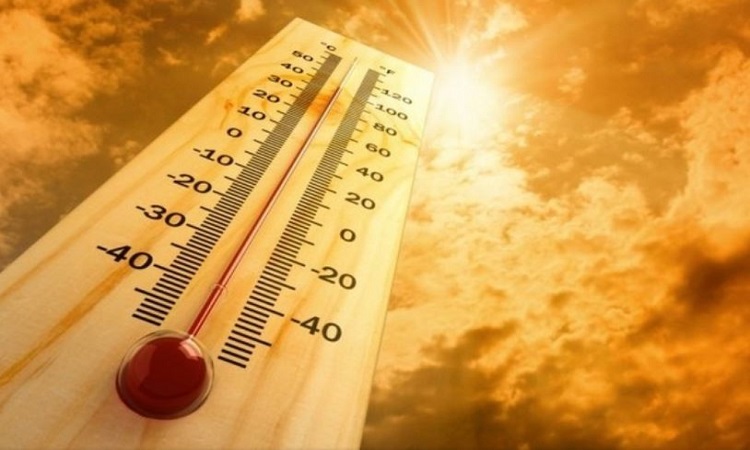 English
English

Located on the banks of the Holy Ganges, Varanasi witnessed scorching summer as the temperature soared above 40 degrees Celsius. Read further on Dynamite News:

Varanasi: Located on the banks of the Holy Ganges, Varanasi witnessed scorching summer as the temperature soared above 40 degrees Celsius.
Health experts advised the residents to stay hydrated to battle the blazing heat wave.
The Chief Medical Officer of Varanasi, Sandeep Chaudhary said, "Drink lots of water, eat proper nutritious food while moving out of the house. Make sure to cover your hands with full sleeves and face with scarves. Stay hydrated as much as possible. Drink lemonade, buttermilk or 'Shikanji' (spiced lemonade) instead of aerated drinks."
A heatwave is a period of abnormally high temperatures, more than the normal maximum temperature that occurs during the summer season in the North-Western parts of India, according to National Disaster Management Authority.
Heatwaves typically occur between March and June, and in some rare cases even extend till July. As of now, schools have been closed in Maharashtra, Odisha and West Bengal due to heat wave conditions. In northern states, the temperature is soaring but there is respite due to Western disturbances from time to time. Heat waves affect the Northern states of Uttar Pradesh, Haryana, Punjab, and Rajasthan generally in the month of May and June.
Senior Consultant Physician & Endocrinologist from Madhukar Rainbow Children's Hospital Dr Sharwari Dabhade Dua, said, "A steady rise in temperature and environmental changes has led to very hot and humid summers since past few years. This rise is only getting worse with coming years."
"Our body has the ability to maintain the temperature via dissipation of heat, in the form of perspiration. However, extreme heat and humidity affect this acclimatization leading to heat stroke," Dr Dua added.
"Certain pre-existing conditions like high blood pressure, heart failure, obesity, diabetes, and kidney disease can cause a higher risk of heat stroke. Children and old age people get affected more. In such cases, adequate hydration with electrolytes like sodium and proper air conditioning is advised to cool the body temperature. Minor symptoms need to be watched before they get severe. Immediate hospitalisation is advised in case of loss of consciousness, chest pain, decreased urination and severe fatigue," Dr Dua further stated.
Meanwhile, the Director of Lok Nayak Jai Prakash Narayan Hospital (LNJP) Hospital, Dr Suresh Kumar said, "These days the temperature is reaching near 40 degrees and when the temperature crosses or is near 40 degrees. There is a lack of water in the body which is called dehydration. It is important that we take as much liquid as possible, like coconut water, juice, lassi, and more water etc."
"Whenever you are going out of the house these days, keep a water bottle with you, as well as keep your head covered while going in the sun. And try not to stay in the Sun for too long as it can lead to dehydration. Also, it can cause problems like heat stroke, and dizziness," Dr Kumar further said.
"Due to lack of water in the body, sweating stops and there is a deficiency of sodium, potassium etc. in the body, which affects our brain and heart," the doctor added. (ANI)